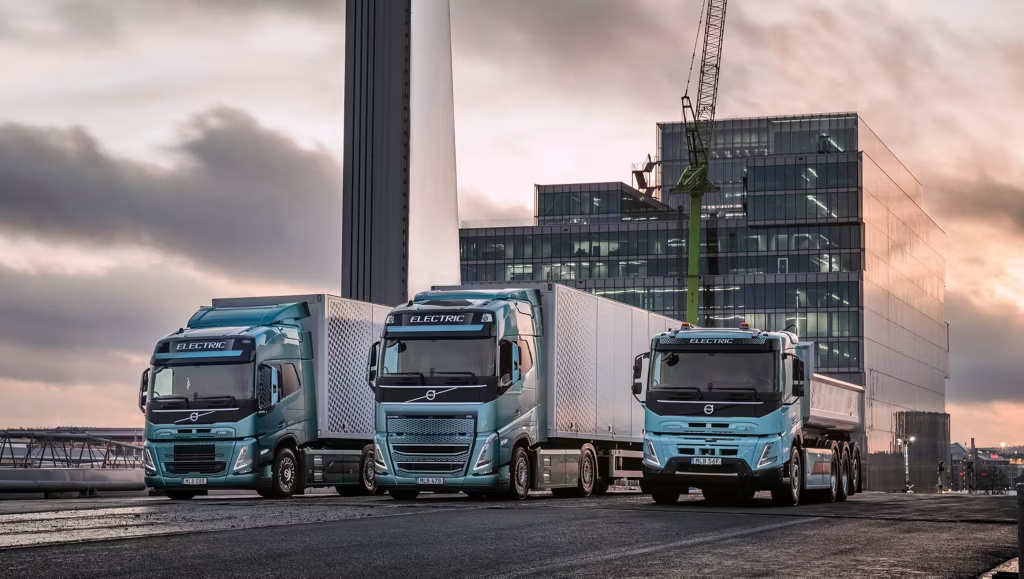Sweden makes a great move after its heavy trucks gone electric, marking a significant milestone in the nation’s journey toward reducing carbon emissions and advancing sustainable transport. Sweden, renowned for its environmental leadership, has now taken a bold step by electrifying its fleet of heavy trucks, a move that is expected to revolutionize the logistics industry and reduce the country’s overall carbon footprint. This transition to electric heavy-duty vehicles places Sweden at the forefront of green transportation innovation, as it leads the way in tackling climate change through cutting-edge technology.
The Shift to Electric Heavy Trucks
In recent years, Sweden has been focusing on sustainable transportation to meet its ambitious environmental goals. The electrification of heavy trucks is a critical part of that strategy. Sweden makes a great move after its heavy trucks gone electric by investing heavily in the development of electric vehicles (EVs) and charging infrastructure. This move is seen as a vital step toward achieving the country’s target of becoming carbon-neutral by 2045.
Traditional heavy-duty trucks are known for their high emissions due to the use of diesel fuel, which contributes significantly to air pollution and greenhouse gas emissions. By switching to electric trucks, Sweden aims to drastically cut down the pollution caused by road freight, which is one of the largest sources of emissions in the country.
Benefits of Electrification
The benefits of Sweden’s move after its heavy trucks gone electric extend beyond just reducing carbon emissions. Electrification of trucks offers numerous advantages, including lower operating costs, reduced dependence on fossil fuels, and quieter operations. Electric trucks have fewer moving parts compared to their diesel counterparts, which means less maintenance and lower repair costs for logistics companies.
Furthermore, the adoption of electric heavy trucks will help Sweden reduce its reliance on imported oil, enhancing energy security. With renewable energy sources like wind and hydropower already playing a major role in Sweden’s electricity generation, electric trucks powered by clean energy will further support the country’s transition to a sustainable energy future.
Supporting Infrastructure and Policies
For Sweden to make a great move after its heavy trucks gone electric, the country has focused on building the necessary infrastructure to support the widespread adoption of electric vehicles. Sweden has invested in a robust network of fast-charging stations along major highways and in urban areas, ensuring that electric trucks can travel long distances without the fear of running out of power.
In addition to infrastructure development, the Swedish government has introduced several incentives and policies to encourage businesses to switch to electric trucks. Subsidies, tax breaks, and grants are available to logistics companies that invest in EV technology. These incentives, combined with the lower operating costs of electric trucks, make the transition economically viable for many businesses.
Challenges Ahead
Despite the advantages, Sweden’s move after its heavy trucks gone electric is not without challenges. One of the primary obstacles is the range limitation of electric trucks. Although battery technology is improving, current electric trucks cannot yet match the long-range capabilities of diesel-powered trucks. This means that for long-haul freight transport, companies may need to adopt hybrid models or rely on fast-charging infrastructure to maintain efficiency.
Additionally, the high upfront cost of electric trucks remains a barrier for some logistics companies. While the long-term savings are significant, the initial investment can be daunting, especially for smaller companies. However, Sweden’s government continues to work on providing financial support to ease this transition.
Impact on the Global Stage
As Sweden makes a great move after its heavy trucks gone electric, other countries are watching closely. Sweden’s success in electrifying its heavy-duty vehicle fleet could serve as a model for other nations aiming to reduce transportation-related emissions. With the global demand for clean and efficient transport solutions rising, Sweden’s leadership in this area could inspire more countries to adopt similar policies and technologies.
Sweden’s efforts also align with the European Union’s Green Deal, which aims to make Europe the first climate-neutral continent by 2050. By leading the charge in the electrification of heavy trucks, Sweden is setting a strong example of how countries can balance economic growth with environmental responsibility.
Conclusion
Sweden makes a great move after its heavy trucks gone electric, leading the charge in the fight against climate change and setting a global standard for sustainable transport. By investing in electric vehicle technology, infrastructure, and supportive policies, Sweden is not only reducing its carbon footprint but also creating a more efficient and sustainable logistics industry. While challenges remain, Sweden’s commitment to a cleaner future is clear, and its success could pave the way for other nations to follow in its footsteps. As the world moves toward a more sustainable future, Sweden’s actions demonstrate that innovative solutions in transportation are key to achieving global climate goals.
Stay connected to know more on arcnews.online for global news like Sweden Makes a Great Move After Its Heavy Trucks Gone Electric. For videos updates visit our YouTube. Do subscribe to Arcnews to get latest updates directly in your mail box.
Have A Great Day.


